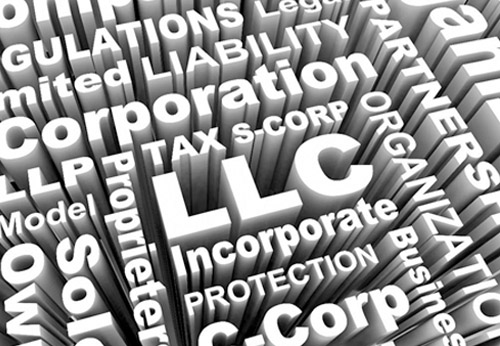 What Is Potentially The Best Business Entity For Small To Medium Businesses?
What Is Potentially The Best Business Entity For Small To Medium Businesses?
Which business entity type is best for your business can vary because every business is different. The two most common business entity types are:
- A Simple Corporation or S Corp – where a business has elected to be taxed as a corporation
- A Limited Liability Company (LLC) – where business owners are taxed at their personal tax rates
With a mix of legal and accounting questions, talking to an accountant and a lawyer will help you determine which entity type is best for your business. The S-Corp and LLC are common because they offer some protection for the owners from liability for the business’s debts.
Rather than having to level taxation, S-Corps and LLCs allow the owners to have passed-through tax treatment and are taxed as if they were a sole proprietorship when it comes to paying their taxes.
When And Why Might We Ever Consider Changing Our Business’ Entity?
The most common reason for changing your business entity type is when you’re taking on a partner or additional partners if you have always been the sole owner. Even a firm owned by two people will need a slightly different organizational structure than a firm owned by one person.
What Are The Key Challenges That Small To Medium Sized Businesses Face?
As a Business Law Attorney, Wickham Schmidt sees many small businesses providing services, such as legal and other services, like those used by larger firms. Many large companies that offer these services, or do so at an elevated level, are not set up to provide services to small businesses.
For instance, large law firms do decent work. Still, they are used to providing legal services for large companies that can pay and have large dollar amounts of disputes beyond what typical small businesses experience. If your small business has a similar argument and goes into one of those large firms, you’ll have to decide whether to pay this firm a lot more than you can afford.
From the large firm’s perspective, you might be a minimal client and get shuffled to the bottom of the pile because you’re only a small business. Then you end up going without the services that you need. Often, a firm matched to the size of the business can be much more helpful than a firm set up to serve large companies that are just dabbling in small business work.
What Are Some Challenges For Business Growth Small To Medium-Sized Businesses Face?
One challenge small to medium-sized businesses face is that the more money, the more problems. Wick has had clients who started on a shoestring budget, but they figured out how to make some money. They then begin hiring employees, buying assets, or getting into more sophisticated businesses without taking the time to assess the risks of expanding.
By the time the risks come to fruition, the business owner finds they’re in a position that they shouldn’t be, and they haven’t done what they needed to do to protect themselves against the risks before they metastasize.
How Can Businesses Minimize Their Risks?
Businesses can reduce risk by having their business entity set up correctly and having the entity governed by shareholder agreements or operating agreements that foresee those risks. Another way to cut risk is to have contracts you use for entering relationships with your customers drafted and reviewed by an attorney.
The goal of a contract is to be written in a way that is fair to the parties and is clear that nobody has to sue anybody down the road. If a lawsuit does occur, the goal would be that once the client is in a good enough position, they don’t have any unpleasant surprises.
Rather than using somebody else’s contract or drafting your own on the back of an envelope, it makes sense to have a lawyer draft and review your basic agreements before you start using them with customers. In business, an ounce of prevention is worth a pound of cure.
How Can Your Firm Help Small To Medium Business Grow And Avoid Potential Legal Disputes?
At the law firm of Wickham Schmidt, we have helped businesses set up their entities and have helped enterprises have shareholder agreements that govern how the owners will relate with one another. We have helped companies draft standard contracts and review contracts others may have given them to sign.
We’ve helped many clients, and many of those clients have successfully avoided litigation and never had to come back to us needing to sue somebody or for being sued. The goal is to prevent litigation rather than to get into it, but if you get into a lawsuit, we can help you.
For more information on the Best Entity For Small To Medium Businesses, an initial consultation is your next best step. Get the information and legal answers you seek by calling (920) 759-8114 today.

If You Have More Questions About Your Case.
Call Wick Today (920) 759-8114